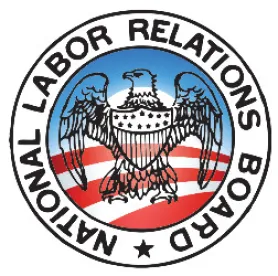The National Labor Relations Board (NLRB) recently issued a decision holding that severance agreements containing certain nondisparagement and confidentiality clauses interfere with employee rights under Section 7 of the National Labor Relations Act (NLRA). The decision will impact employer severance agreements with both non-unionized and unionized employees.
In McLaren Macomb, 372 NLRB No. 58 (2023), eleven front desk/greeter employees of McLaren Macomb Hospital in Michigan (the “Hospital”) were permanently furloughed in 2020 due to the pandemic. The employees were in the bargaining unit represented by Local 40 RN Staff Council, Office of Professional Employees International Union, AFL-CIO (the “Union”). The Hospital presented each employee with a severance agreement requiring them to release the Hospital from claims arising out of their employment and termination. The severance agreement also contained two common provisions: (1) a confidentiality provision that prohibited the employee from disclosing the terms of the agreement to anyone else, other than their spouse or professional advisor, and (2) a clause that prohibited the employee from disclosing proprietary information and from making “statements to Employer’s employees or to the general public which could disparage or harm the image of Employer, its parent and affiliated entities and their officers, directors, employees, agents and representatives.”
The Union’s NLRB charge may have been primarily motivated by the fact that the Hospital failed to notify and bargain with the Union regarding the permanent furlough and its effects. Indeed, the NLRB held that the Hospital had violated Section 8(a)(1) of the NLRA for failing to do that. However, the Union also argued that the confidentiality and nondisparagement clauses violated Sections 7 and 8(a)(1) of the NRLA. In agreeing with the Union, the NLRB overturned past cases decided in 2020.
Section 7 gives employees, other than executives, managers, supervisors, or independent contractors, the right to form, join, or assist labor organizations, to bargain collectively, and to engage in “other concerted activities...or other mutual aid or protection.” Section 8(a)(1) makes it illegal for employers to interfere or restrain those rights.
Generally, Section 7 rights include the ability of non-management employees, in both union and non-unionized settings, to work together to seek changes in wages, hours, or working conditions, to protest/complain about employer policies, or to refrain from such activities. The NLRB has found that Section 7 rights can apply not only to speech at work, but also to social media, political forums, and more.
What Does the NLRA Have to Do with Severance Agreements?
In the McLaren case, the NLRB emphasized that Section 7 rights are applicable not only to current employees, but former employees as well, and that protected speech includes communication to third parties and not just coworkers. Applying those concepts, they found that the nondisparagement clause in the severance agreement was too broad because it prohibited the employee from speaking on labor issues, disputes, or terms and conditions of employment. The NLRB also found that prohibiting the employee from making statements about the Hospital but its “officers, directors, employees, agents and representatives” would “chill” Section 7 rights.
Regarding the confidentiality provision, the NRLB found that, because the clause prohibited the employee from discussing the agreement with “any third party,” including coworkers, and from disclosing the existence of an unlawful provision in the agreement to the NLRB, Section 7 was violated. The decision did not prohibit confidentiality agreements regarding trade secret and confidential competitive information.
The McLaren case also held that merely offering the severance agreement was a violation of the NLRA.
The McLaren Decision’s Impact on Severance Agreements
The McLaren decision will require employers to examine future severance agreements with non-management employees and determine how they might comply. The case presumably would not apply to past severance agreements, although the decision did not specifically address this topic. The ruling also does not apply to severance agreements with any manager, executive or other "supervisor" (as such term is defined under the NLRA), or independent contractor.
Employers will have to consider the decision and how it wishes to approach severance agreements with non-managerial employees. Employers may consider a range of options, depending on their risk tolerance and employment setting:
-
Avoid nondisparagement and confidentiality provisions in severance agreements altogether. This would be the most risk-averse choice to avoid an NLRB charge. Recognizing that a nondisparagement clause often goes both ways, severance agreement negotiations might now exclude providing letters of reference or recommendation.
-
Continue to use the same nondisparagement and confidentiality clauses, and if an employee brings a charge to the NLRB, defend the charge. The Hospital in the McLaren case was required to stop offering severance agreements that violate the decision and post that they had violated the NLRA. However, the NLRB has other remedies it could order, including damages for “harms” caused to employees who are subject to restrictions that violate the NLRA. Remedies could include money damages, rescinding severance agreements, or attorney’s fees.
-
Carefully draft nondisparagement and confidentiality clauses to encompass only certain prohibitions. For example, under NLRA case law, employees are allowed to criticize their employers, but the communication cannot be “so disloyal, reckless, or maliciously untrue as to lose the Act’s protection.”
-
Employers can also use waiver language stating that nothing in the severance agreement should be interpreted to prohibit the employee from exercising their Section 7 rights under the NLRA. This may not be enough to pass muster, but such waiver language has been used to preserve rights under the NLRA and other federal laws, such as EEOC rights.
Employers may get further assistance in complying with this decision if it is challenged in the federal courts, or if the NLRA publishes guidance on complying.




 />i
/>i

